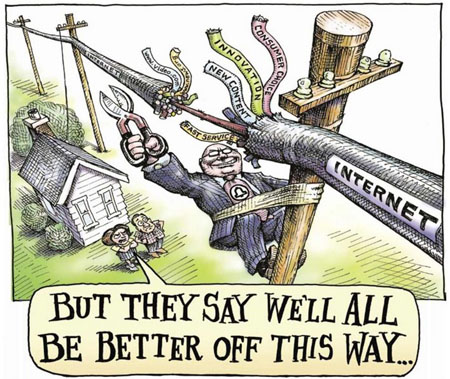Are Net Geners Really Tech Savvy Learners? (MSTU 4020; Week 4)
The following post is a weekly response for a graduate course on Social & Communicative Aspects of the Internet at Columbia University, Teachers College. I invite all Media Speaks readers to engage by adding comments below.

I was delighted to read Kirschner and Karpinski's article "Facebook and Academic Performance" because I'm sure this article will continue to spark plenty debates between educators and professionals, as indicated in the First Monday journals. I had first heard about the statistic that "Facebook users have lower GPAs and spend fewer hours per week studying than non-users" via Twitter. Kirschner and Karpinski's findings were significant enough to be published on TIME, although the media hype surrounding the article is a major academic criticism of the study overall. However, it's also important to mention that there is plenty of room for improvement in this study. The researchers indicate limitations and ways to better improve qualitative data at the end of the article.
Another reason I was highly engaged with this article is because it's relevant to other ideas I've been thinking about lately concerning our new generation of tech users and learners. I often wonder if students and minorities are, in fact, learning via online spaces. How do we understand literacy via online spaces in urban communities as African-Americans mobile users are on the rise, for instance? I posed a similar question about the relationship between literacy, new technology, and urban communities on Twitter a few weeks ago. I cited digital scholar, Allison Clark, who stated (paraphrasing) that we can't research or print a paper using a mobile device. I also wrote an article addressing a similar topic on The Loop 21.
Needless to say, the initial responses I received from Twitter and from my article were from people who immediate came to the defense of mobile technology. Some stated that because mobile technology is so innovative and rapidly expanding that we can, in fact, learn and become more literate through this type of media. Though I'm reminded of the conversation we had last week about the difference between information and knowledge.
Are what we're doing (or learning) by way of Google, Wikipedia, and on mobile devices ("passive consumption of information") a true indicator of knowledge production?
Kirschner and Karpinski's article also asks us to consider whether or not Homo Zappiens or Net Geners (those multi-tasking "techies" born in the 1980s and 1990's) have a deep knowledge of technology, especially when learning-by-doing "is often limited to basic office suite skills, e-mail- ing, text messaging, FB, and surfing the Internet" (1238).
So I wonder, are net geners really tech savvy learners or simply consumers of "low level", passive, or superficial technology? How might we measure knowledge production when the majority of minority net geners are using mobile devices to access the Internet?
And now, your moment of Zin.
Who Owns Cyberspace? (MSTU 4020; Week 3)
This week's reading discussed the implications of cyberspace on (and as) society and economy. I was particularly drawn to Dyson's et al. piece "Cyberspace and the American Dream: A Magna Carta for the Knowledge Age" and Webster's "The Information Society Revisited." Admittedly, I found myself distracted by the date on which these pieces were published, especially the Magna Carta piece (1994). How might these articles best relate to technological advances since 2009? We've discussed before the rapid changes in technology and how these changes almost certainly influence our social, cultural, economic, and political lives.
For the most part, the Magna Carta article came across as a melodramatic argument for technological determinism of cyberspace. Released in 1994, this "living document" constitutes a guide, (akin to The Constitution perhaps?), which encourages future readers to learn from and add to ideas about the impact of cyberspace on society. I'm not sure if or when this document was last updated, although I hope, for the sake of its purpose, that this document is still a work in progress.
However, one of the most notable quotes from the Magna Carta article came from a 1964 quote by libertarian Ayn Rand. It reads:
Government does not own cyberspace, the people do.
This quote immediately made me think about net neutrality. Sure, the government does not own cyberspace, but neither does, or should, corporations like Google and Verizon.
Net Neutrality Explained
It's interesting that Dyson's et al. piece talked about the idea of property rights in cyberspace since it appears like the founding mothers/fathers of this document didn't account for The Great Recession of 2010. Neither, perhaps, did they consider that the election of the first African-American president of the United States would ignite a fire storm within U.S. politics. Could they have ever imagined that conservative and libertarian media personalities like Glenn Beck would publicly condemn the president and his Administration as socialist for expanding broadband Internet access to poor and rural communities? Did the authors of this piece ever wonder about how the progressive left and far right would fight to the death about government regulation of the Internet? From a 1994 perspective, I can only imagine how easily it was to romanticize an open, neatly regulated, and "demassifyied" virtual landscape. Though in present-day reality, it seems as though cyberspace has turned into an even more contentious landscape.
The Young Turks Vs. Glenn Beck on Net Neutrality
If anything, the views expressed in the Magna Carta article could be best categorized as technological determinism. Tech advancements of cyberspace as a determining factor to the progress of our society as a whole does not necessarily signify a happy ending of a utopic society, but perhaps best functions as a starting point to a very long, exhausting, and controversial debate.
